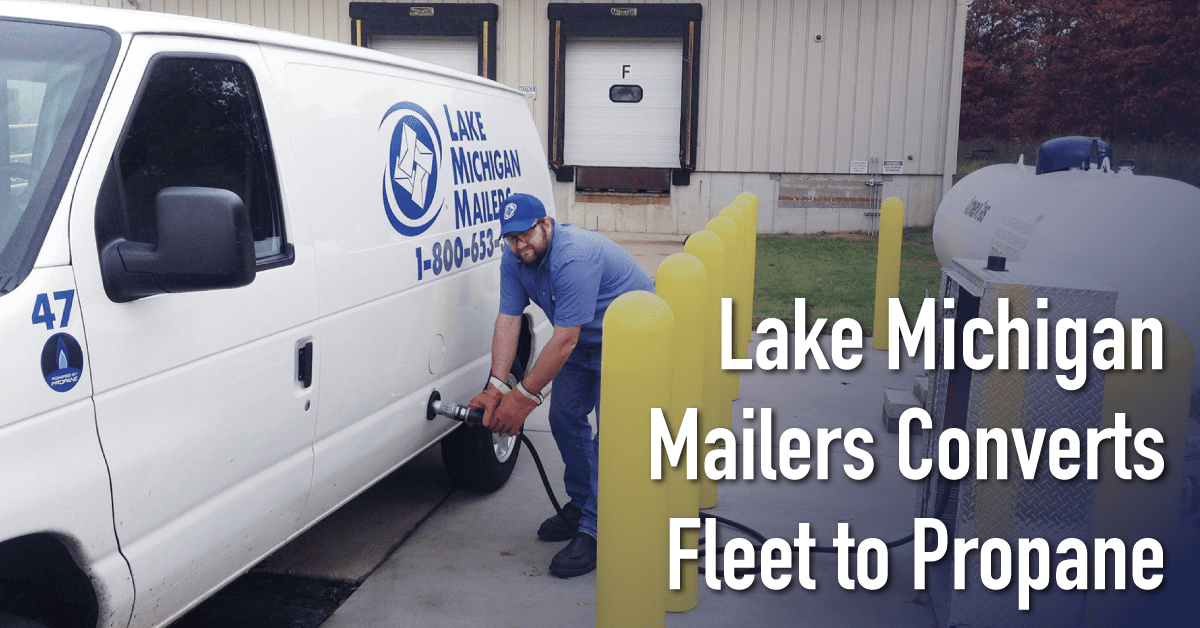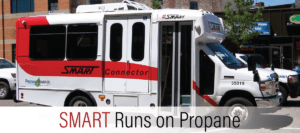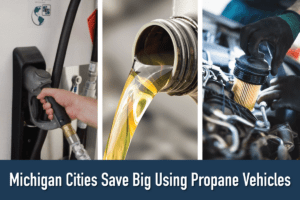Among the considerations fleets must review before switching to an alternative fuel are vehicle miles driven in a day, total cost of ownership, infrastructure improvements, and fuel price. For Lake Michigan Mailers, propane autogas was the obvious choice.
“Not only did propane autogas fulfill all of our requirements, but a study showed it would give us the fastest return on our investment,” said David Rhoa, President of Lake Michigan Mailers. “When we saw the results, we were absolutely convinced that propane autogas was the most viable option for our needs.”
“Not only did propane autogas fulfill all of our requirements, but a study showed it would give us the fastest return on our investment. When we saw the results, we were absolutely convinced that propane autogas was the most viable option for our needs.”
David Rhoa, President of Lake Michigan Mailers
A typical Ford E-150 van in Lake Michigan Mailer’s 30-vehicle fleet runs more than 100 miles a day, making electric vehicles an impractical option, Rhoa explains. Compressed natural gas was rejected because of the costs associated with building a supporting infrastructure for a fleet the size of Lake Michigan Mailers. The E85 blend of gasoline was also not a viable solution because fewer Michigan gas stations support that fuel. But propane was the answer to each question asked. With the help of propane suppliers AmeriGas and Altogas, they now have a 1,000 gallon propane autogas tank and expanded fueling depot at Lake Michigan’s Kalamazoo, MI facility.
“The filling time is the exact same with gasoline and propane autogas,” Rhoa says. “In fact, our drivers are saving time because they’re not leaving the property and waiting in line to fill up at a gasoline station. When they leave the facility, they’re full and ready to go.”
Lake Michigan Mailers began the conversion in June of 2012. The company initially outfitted a single vehicle with the Icom North America JTG II bi-fuel liquid injection system, which also allowed the vans to operate on gasoline as needed. Since then, the company has reduced its consumption of gasoline by 50%.
“The filling time is the exact same with gasoline and propane autogas. In fact, our drivers are saving time because they’re not leaving the property and waiting in line to fill up at a gasoline station. When they leave the facility, they’re full and ready to go.”
David Rhoa, President of Lake Michigan Mailers
“The decision to switch more of our fleet to bi-fuel in the future was a no-brainer after we saw the cost savings of converting the initial vehicle,” Rhoa explains. “All indications are that we are on pace to hit return-on-investment goals.”
“The savings on a single bi-fuel vehicle running 25,000 miles typically covers the conversion cost within the first year,” Rhoa says. “After that, the bi-fuel vehicle essentially pays back dividends to the company over the next three years.”
Lake Michigan Mailers runs its vehicles on propane approximately 99% of the time, switching only to gasoline on days when a route is longer than normal. The company says that, despite a 7% increase in the price of gasoline, it recorded a 50% decrease in fuel expenses for the equipped vehicles within the first nine months of 2012. Rhoa estimated the company saved 12¢/mile by using propane autogas over gasoline.
Drivers report that the vehicles suffer no decline in performance, torque or horsepower, Rhoa says. Of course, there is also a positive environmental component to using propane autogas, but that is not what initially attracted Lake Michigan Mailers.
“Though propane autogas is a part of Lake Michigan Mailers’ sustainability program, it was not the environmental green, but the monetary green, that ultimately led us to choose and stick with propane autogas,” Rhoa says.
Buying new propane vehicles or converting your existing fleets to propane autogas is made easier with the $4,000 rebate available from the Michigan Propane Gas Association.





